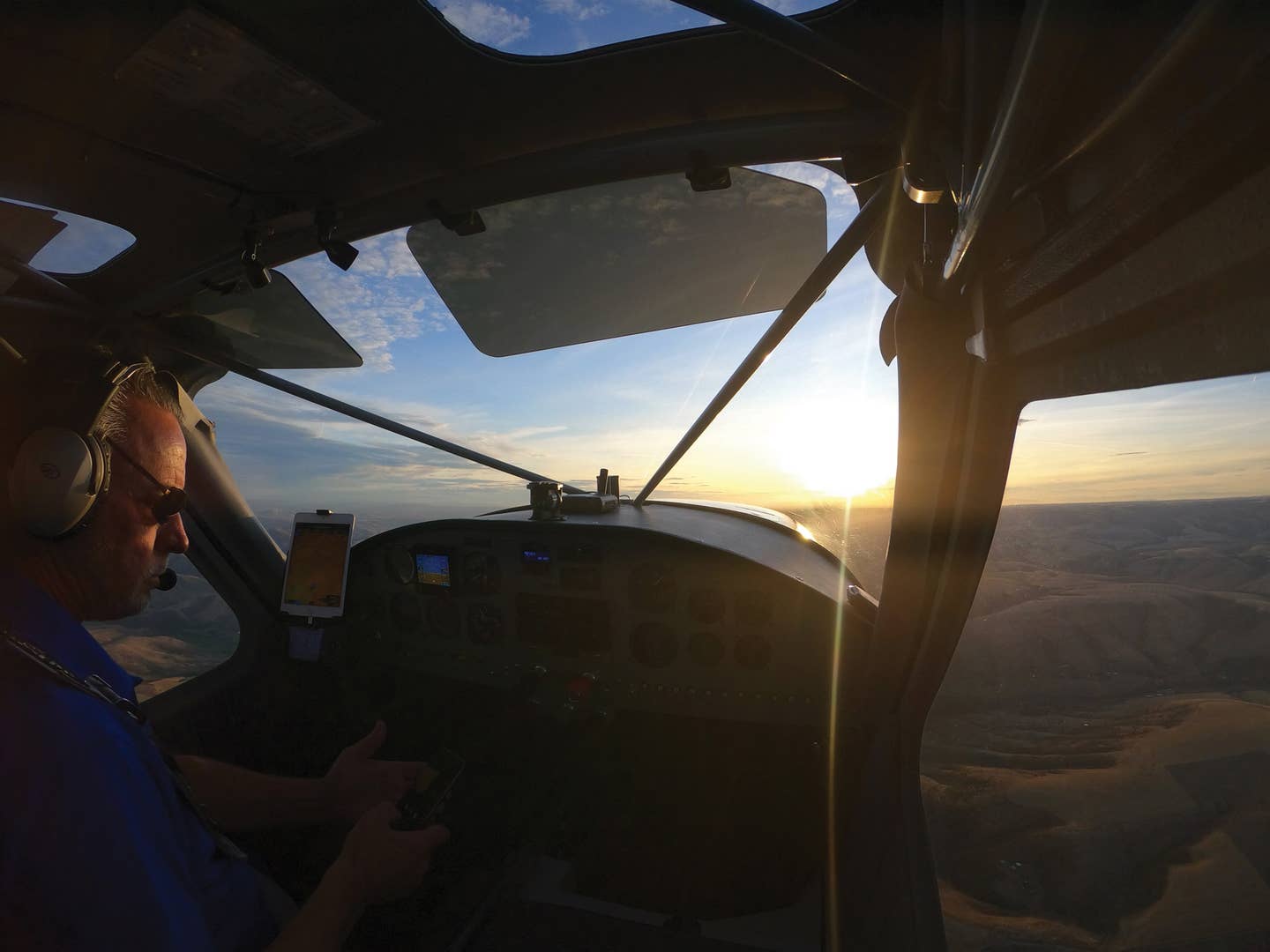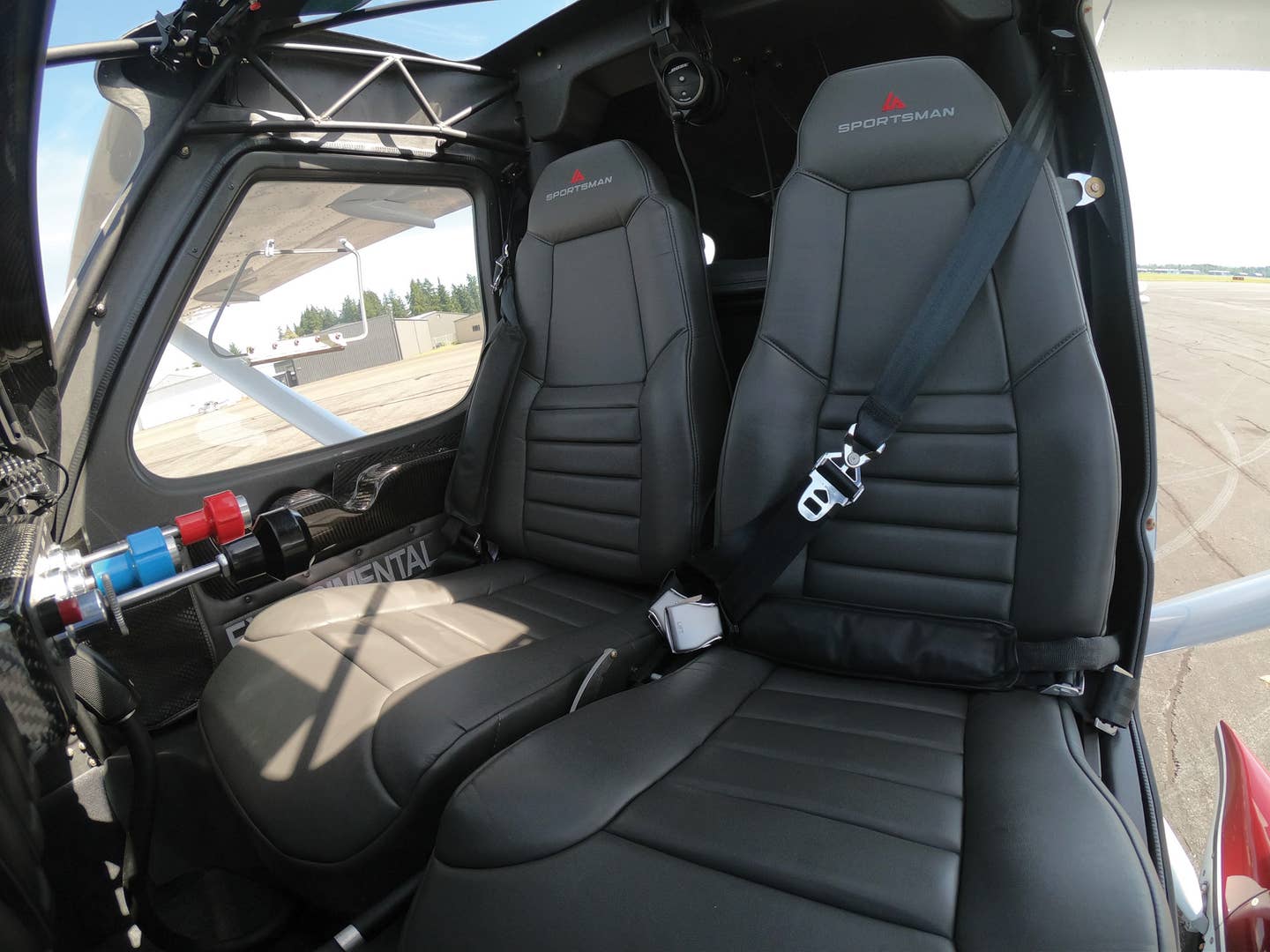 |
Most often, when we use the term "fatigue" in aviation circles, it refers to the airplane's fatigue life. Airframes get tired, eventually reaching the point that they're dangerous. The exact same thing could be said about the pilot's airframe. A pilot can easily reach a level of fatigue that he's no longer safe to fly. What makes it difficult, however, is that he may not even know he's getting fatigued. Then, when this is mixed with any kind of distraction, a pilot becomes a danger to himself, his passengers and those around him.
Actually, fatigue and distraction are two different subjects and often have their roots outside of the cockpit. However, they become intertwined, once the cockpit door is closed, and their effects are hard to separate. So, let's talk about them individually, then address how to tell when we're about to step over the threshold and do something stupid, like flying when we shouldn't be.
Fatigue Defined
First of all, fatigue is more than being tired, even though we often use the terms interchangeably. By far the biggest difference is that "tired" can readily be felt. We know for a fact when we're tired because we have an urge to curl up in some warm cozy place and catch a few "z's". It's hard to be tired and not know it. We're droopy. And, in extreme cases, maybe a little dopey.
Sometimes "fatigue" can have the same symptoms. That's when the effects are so extreme we say we're "bone tired:" It's as if our body is sagging. In fact, most of us get a feeling that our face is sagging as a signal that we're past being tired and are well into being fatigued. However, long before our body is sending out warning signals, our brain is already feeling the effects of fatigue. Our body can feel just fine, when our brain is anything but fine.
There are obviously two different forms of fatigue---mental and physical---and one can easily exist without the other. For example, let's say that for some reason we're digging a ditch by hand. We spend hours busting our back while hoisting dirt out of a hole. Our body is taking a real beating. However, during the entire process, our brain is barely engaged. In fact, part of our brain may be snoozing or reliving a favorite movie. The amount of our brain that's involved in guiding the spade and correctly depositing the dirt alongside the ditch is small. So when the ditch is finished, our body is spent, but our brain is still ready to rock and roll. It's not unlike the flight to get a $200 hamburger on a bell-clear, perfectly smooth day: We know where we're going, but nothing about the flight is remotely challenging, so our brain is minimally challenged.
By the same token, we can log an hour hand-flying instruments in turbulence, with fairly complex routing and approaches down to minimums with will-we-make-it-or-not outcomes ahead and we deplane with some spring left in our step, but our brain is done for. We have to concentrate just to read the menu at lunch.
Good Days, Bad Days And Creeping Fatigue
Our brain is a curious organism, and most of us will freely admit that we aren't truly in control of it at all times. We all have days when, for no apparent reason, we just can't get it together, even when we're neither fatigued, nor tired. We're just having an "off" day. It's as if there's a thin layer of fog over our thought processes. Then we have other days when our brain is a lean, mean, thinking machine, and we can do no wrong. And we've all seen how those differences affect our performance in the cockpit. However, all of these naturally occurring factors can be severely aggravated by mental fatigue.
The single biggest danger with mental fatigue is that we can easily be suffering from it and not have a clue that it's there because of the insidious way that it creeps up on us. Plus, the causes of fatigue can be varied and inconsistent: Some things can turn our brain into Silly Putty in nothing flat, while other times we can truck along for most of a day and be just as sharp at the end as we were at the beginning.
It's logical that our brain has to work harder in intense flying situations, so it naturally tires out more quickly. However, there's a secondary factor at work here that can make a relatively normal situation into a high-stress and fatiguing one, and that factor is "experience." New experiences demand more of our brain, but after we've built up experience in those situations, they'll generate far less stress and the fatigue associated with it. Nowhere is this more obvious than in flight training.
Learning to fly is the very definition of "intense." Every second spent in the cockpit has our brain running as fast as it possibly can because everything is new. And the pressure doesn't let up. Just when we catch up with something, e.g., how to turn the airplane, something else, e.g., landing the airplane, pops up. It's all about learning something new and then concentrating on it to perfect it. At no time does a student's brain spool down. It's always running at 100% in an effort to break through the fog of newness into crystal-clear understanding. This can really tire the old brain out. This is why it's almost always counterproductive for a student to fly three hops a day: The last hour, he's working with a toasted thinking apparatus.
A brain is essentially a non-moving muscle and needs to be treated like one. Exercise it, then give it some rest to regenerate itself, before tossing it back into the fray. The ideal flight-training schedule has a hop early in the morning and another later in the afternoon with as much time as possible between to allow recharging the mental batteries. A few hardy souls can handle three hops a day, but "normal" folks will find the third hop to be largely nonproductive. Much worse, when they can't seem to get things right because their brain is on the backside of the fatigue curve, they get frustrated. Learning to fly is already rife with frustration, so we don't need to make it worse.
A Distracted Brain Compounds A Bad Situation
Life is nothing but one long distraction. Almost every attempt to move steadily toward a goal is continually being frustrated by one thing or another, pulling us off track. That's just the way life is. But, some of us handle distractions better than others, and some distractions are more disruptive than others. So, it's important that before we crawl into the cockpit, we recognize that we may be bringing some of life's distractions into the cockpit with us, and that can create a dangerous situation. This is especially true when we're tired and/or fatigued because a fatigued brain is far less capable of dealing with distractions than a rested one.
The distractions that originate outside of the cockpit can be dealt with much better than those that originate inside the cockpit because we should be able to recognize them before we strap in. Maybe it's financial problems, a divorce, a cat that refuses to use the litter box, whatever. If something flitting around the fringes of our thought patterns is threatening to interfere with our thought processes, we need to be aware of that and address it. If we're distracted, 100% of our brain may not be available during the flight, and this is definitely not a good thing. If we're fatigued, as well, we're compounding a really bad situation and shouldn't be in the air.
Distractions And Fatigue As Check List Items
How do we know ahead of time, when distractions and/or fatigue are getting the best of us? Simple: add a single, unwritten item right at the top of the pre-start checklist---Brain Check. Climb into the airplane, lay our hands in our lap, put our head down and, for five seconds, let our mind run free while we analyze what it's doing. We need to look at ourselves as if we're outside observers and see if there's anything floating around in our thoughts that has nothing to do with flying an airplane. If our thoughts aren't totally airplane oriented, it might not be a bad idea to cancel the flight.
Further, if, when starting the airplane and preparing to taxi, we find we have to thinker harder than normal to know what to do next, then we know that this is a flight that shouldn't be taken.
Even if we don't bring distractions into the cockpit with us, pre-existing fatigue will definitely come aboard with us. So, if there are distractions during the flight---a radio stops working, there's a mechanical malfunction, weather forces us to scud run, etc.---that fatigue may rob us of the mental acuity required to deal with the developing situation. It takes very little mental fatigue mixed with relatively minor distractions to cause major problems, so we need to be aware of exactly how fatigued we really are.
Everyone has distractions in life. And civilization almost guarantees that each of us will be fighting a little fatigue. We just have to recognize both and make sure we stay on the ground, so we don't purposely create a dangerous situation when either or both reach disruptive levels.

Subscribe to Our Newsletter
Get the latest Plane & Pilot Magazine stories delivered directly to your inbox






